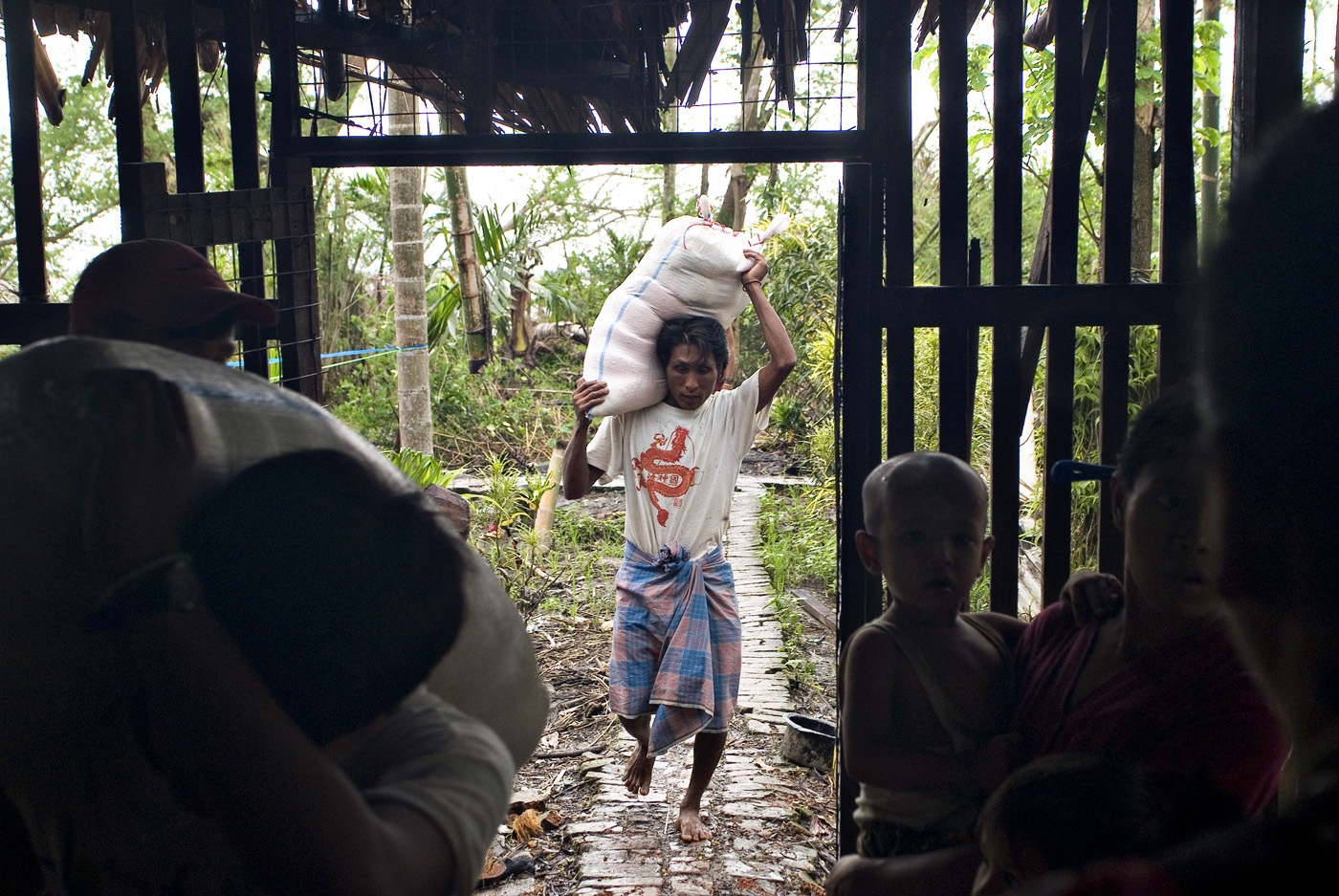Five days after Cyclone Nargis battered Myanmar's Ayeyarwady Delta, Win Aung, a lecturer in Yangon, the former capital, drove to the outskirts of the city to see whether the rumours of massive destruction in rural areas were true.
He was quickly driven into action by what he saw: flattened villages and people huddling in monasteries, schools and other temporary settlements, pleading for help.
Days later, Win Aung led a convoy of his business friends - including some rice traders – in six trucks laden with sacks of rice and onions for the hungry survivors.
It was the first of a series of missions taking Win Aung and his friends deep into the disaster zone to distribute food, mosquito nets and other supplies to the destitute.
Restrictions on NGOs
"In a country like Burma, NGOs and INGOs play a lesser role - they are always restricted," Win Aung told IRIN. "But the private sector is responsive. They can act very quickly."
Since Nargis struck, countless people from Yangon and elsewhere in Myanmar have joined in spontaneous private efforts to assist stricken compatriots left homeless and hungry by the cyclone. Estimates put the number of dead or missing people at 133,000.
In private cars and hired trucks, businessmen, students, journalists and artists have streamed into the devastated delta to distribute life-saving supplies to the needy.
Many more, including Myanmar migrants and students overseas, have supported friends' efforts with cash and material donations. Win Aung found that as word spread of his initiative, he began receiving many phone calls from acquaintances eager to contribute.
"The private sector has taken a leading role even though they have no humanitarian experience," Win Aung explained.
While these private efforts have been un-coordinated and at times amateurish, they nonetheless reflect a heartfelt desire by many local citizens to help - while UN agencies and international charities struggle to cut through red tape to scale up their own relief efforts.
"We do believe that a substantial amount of the assistance that has reached people - certainly in these first four weeks - has come from essentially local charity [with the] citizens of Yangon simply driving down into the delta areas and handing out food," Paul Risley, a spokesman for the World Food Programme (WFP), told IRIN.
Official response
Myanmar's government has expressed ambivalence towards such initiatives.
After cyclone victims began lining the main roads in the hope of obtaining supplies from passing cars, authorities circulated fliers urging donors not to distribute aid along the roads.

In one case, reported in the media, a convoy of 48 private trucks was impounded, and their drivers charged for traffic violations, on the return to Yangon after a relief trip.
Win Aung said local authorities' attitudes varied greatly. In one place, authorities demanded his group leave their rice and other supplies with them to distribute, which they refused to do, opting to leave with their goods.
Elsewhere, officials were more tolerant and supportive of their efforts and allowed them to distribute directly to victims.
On Win Aung's missions, Buddhist monks have also helped to coordinate aid flows, particularly in remote areas accessible only by boats. In one area, the head monk sent a monk with Win Aung's group to show them the way to needy villages.
"It was really beautiful," he said. "A monk guide led us to the place where aid had not reached."
Yet despite the extent of private relief efforts and the sheer numbers of well-meaning citizens involved, Win Aung said far more needed to be done to ensure the survivors' welfare and a sustainable future.
His friends are now debating whether they have the capacity to try to launch their own micro-credit scheme to help some of the needy get back on their feet.
"What we have done is just a drop in the ocean," he said.
ak/ds/mw
This article was produced by IRIN News while it was part of the United Nations Office for the Coordination of Humanitarian Affairs. Please send queries on copyright or liability to the UN. For more information: https://shop.un.org/rights-permissions




